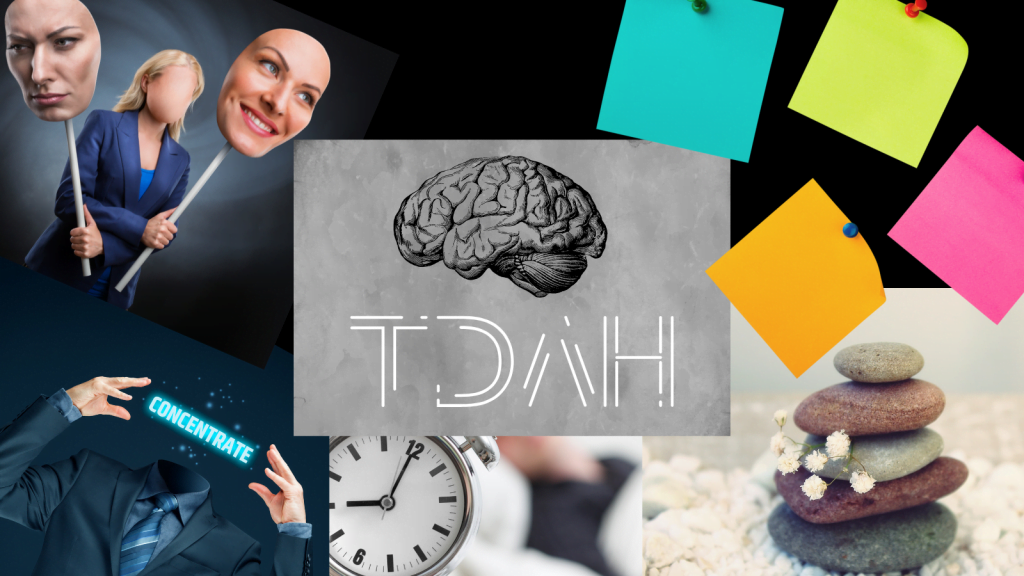Table of Contents
Know the Different Subtypes and Find the Best Approach for You

Attention Deficit Hyperactivity Disorder (ADHD) is a neurobiological disorder of complex and multifactorial origin.
There are three subtypes of Attention Deficit Hyperactivity Disorder according to the Diagnostic and Statistical Manual of Mental Disorders (DSM-5), which is a widely used guide for diagnosing mental disorders. These subtypes are based on the predominant symptoms experienced by the person with the disorder. Are they:
- ADHD Predominantly Inattentive: In this subtype, symptoms of inattention are more prominent than symptoms of hyperactivity/impulsivity. People with this subtype may have difficulty sustaining attention, be easily distracted, have trouble organizing tasks, and exhibit frequent forgetfulness.
- ADHD Predominantly Hyperactive/Impulsive: In this subtype, symptoms of hyperactivity and impulsivity are more prevalent than symptoms of inattention. People with this subtype may exhibit excessive agitation, difficulty sitting still, talking excessively, acting impulsively without thinking about the consequences, and having difficulty waiting their turn.
- Combined ADHD: This is the most common subtype, in which the symptoms of inattention, hyperactivity and impulsivity are significantly present. People with this subtype may have a combination of inattentive symptoms, such as difficulty concentrating, with hyperactivity/impulsivity symptoms, such as restlessness and impulsivity in actions.
It is important to emphasize that ADHD is a complex and heterogeneous disorder, and symptom manifestations can vary widely from one person to another. In addition, the DSM-5 also introduced a category called “Other Specified” for cases that do not specifically fall into the subtypes mentioned above, but still have significant disorder symptoms.
The diagnosis of the ADHD subtype is carried out based on the clinical evaluation carried out by qualified health professionals, such as psychiatrists, psychologists or neuropediatricians, who take into account the symptoms and the functional impact on the person's daily life.
It affects children, adolescents and adults, and is characterized by the presence of symptoms of inattention, hyperactivity and impulsivity, which can significantly impact the person's daily life and academic, professional and social functioning.
Symptoms of inattention can include difficulty staying focused, easily distracted, frequent forgetfulness, a tendency to misplace objects, difficulty following detailed instructions, and making careless mistakes.
Hyperactivity symptoms are manifested through excessive motor agitation, restlessness, difficulty staying still in situations that require calm, impulsiveness and difficulty in waiting for one's turn. In addition, symptoms of impulsivity can manifest in making hasty decisions, interrupting conversations and difficulty controlling emotional reactions.
The exact cause of ADHD is still not completely understood, but it is believed that a combination of genetic factors, brain chemical imbalances and environmental factors may be involved in its development. Research indicates that certain brain areas associated with attention control, impulse inhibition, and emotion regulation may show structural and functional differences in people with such disorders.
The diagnosis of ADHD is made by trained health professionals, such as psychologists, psychiatrists or neuropediatricians, through a comprehensive clinical evaluation.
It is necessary that the symptoms are present in different contexts, such as at home, at school or at work, and that they cause significant damage to the person's global functioning. In addition, it is important to exclude other medical or psychiatric conditions that may be contributing to the symptoms.
ADHD treatment is individualized and may involve a multimodal approach, which includes behavioral and psychoeducational interventions, psychosocial support, parental guidance and, in some cases, the use of medication. Behavioral interventions aim to help the person develop strategies to improve organization, planning, impulse control, and attention.
Cognitive behavioral therapy can also be helpful in treating ADHD, helping to identify dysfunctional thinking patterns and developing adaptive skills.
In some cases, the use of stimulant medications, such as methylphenidate or amphetamines, may be recommended to control ADHD symptoms. These drugs act on the central nervous system, helping to improve attention, reduce hyperactivity and impulsivity. However, the decision to use medication must be made in conjunction with the doctor, considering the benefits and possible side effects.
In addition to treatment, it is important to provide a supportive and understanding environment for people with ADHD. Education, emotional support, time management and organization strategies, and adaptations in the work or school environment can help maximize the potential of people with ADHD and facilitate their integration into different areas of life.
Although ADHD is a chronic disorder, with the right treatment and support, those affected can learn to manage their symptoms and achieve good functioning in different spheres of life. It is essential to seek the guidance of specialized health professionals for an accurate diagnosis and an adequate treatment plan.
Appropriate remedies for the treatment of ADHD

There are different types of medications that may be prescribed as part of Attention Deficit Hyperactivity Disorder (ADHD) treatment. The most commonly used medications for ADHD are stimulants and the non-stimulants. It is important to emphasize that only a qualified doctor can evaluate and prescribe medications, taking into account the individual characteristics of each person.
- Stimulants:
- Stimulants are the most commonly prescribed medications for treating ADHD. Methylphenidate is a widely used example. It is available in immediate-release formulations, which have a short-lasting effect, and in extended-release formulations, which have a longer-lasting effect throughout the day.
- Amphetamines, such as dextroamphetamine, can also be prescribed for the treatment of ADHD. Like methylphenidate, they are available in immediate-release or extended-release formulations.
These stimulant medications help improve attention, reduce hyperactivity, and control impulses in people with ADHD. They act on the central nervous system, affecting neurotransmitters related to the control of attention and impulsivity. Stimulants are effective for many people with ADHD and often have positive results in reducing symptoms.
However, in some cases, stimulants may not be suitable or well tolerated. In such cases, doctors may prescribe non-stimulant medications to treat ADHD.
2. Non-stimulants:
- Atomoxetine, which is a selective norepinephrine reuptake inhibitor. Atomoxetine may be especially helpful for people who do not tolerate stimulants well or have medical conditions that contraindicate its use. Non-stimulant medications also help improve attention and manage ADHD symptoms, but they work differently than stimulants. They generally take longer to show full results, but they have the advantage of not being controlled substances and have a different side effect profile.
It is important to highlight that each person responds individually to medications, and drug treatment must be adjusted according to each individual's response and tolerance.
In addition, medications should be used in combination with other interventions such as behavioral therapy, educational support, and adaptive management strategies. ADHD treatment is comprehensive and must address medical, psychosocial, and educational aspects.
The decision to use medication and the choice of the most appropriate medication should be made in consultation with a specialist physician, such as a psychiatrist or pediatric neurologist, who will carefully assess the situation and individual needs of each person with ADHD.
The doctor will consider factors such as age, severity of symptoms, presence of coexisting medical conditions, and history of response to previous medications. The aim is to find the best combination of treatments to help the person manage their symptoms effectively and improve their quality of life.
Tools and apps that help with ADHD

While I can provide general information about tools and apps that can help manage ADHD, it's important to note that each person is unique and may respond differently to these tools. Additionally, specific app recommendations may depend on factors such as age, individual needs and personal preferences. Here are some app categories that you might find useful:
- Reminders and Organization:
- Task management apps like Todoist, Trello or Any.do can help organize and keep track of everyday tasks.
- Reminder apps like Google Keep, Microsoft To-Do or Remember The Milk can help you remember important appointments and deadlines.
- Productivity and Concentration Techniques:
- Applications of pomodoro techniques, such as Focus Keeper, Forest or Be Focused, can help divide time into intervals of concentrated work interspersed with breaks.
- Distraction blocking apps like Freedom, Offtime, or Forest can help limit access to apps and websites that might be distracting while on task.
- Mindfulness and Meditation:
- Meditation apps such as Headspace, Calm or Insight Timer offer guided mindfulness and meditation exercises to help calm the mind and increase mindfulness. We even have an article on our website about mental health and one about the guided meditation app that is top 1 at the moment, the headspace.
- Records and Tracking:
- Mood and symptom recording apps such as Daylio, eMoods, or MoodTrack Diary can help track mood patterns and identify potential triggers.
- Sleep tracking apps such as Sleep Cycle, SleepScore or Sleep Time can help monitor sleep quality and identify irregular sleep patterns.
- Mood and symptom recording apps such as Daylio, eMoods, or MoodTrack Diary can help track mood patterns and identify potential triggers.
It is important to remember that these suggestions are examples only and may not be suitable for everyone. Before using any app, it is recommended that you do your research, read reviews, and consider the advice of qualified healthcare professionals who can provide personalized recommendations based on individual needs.







